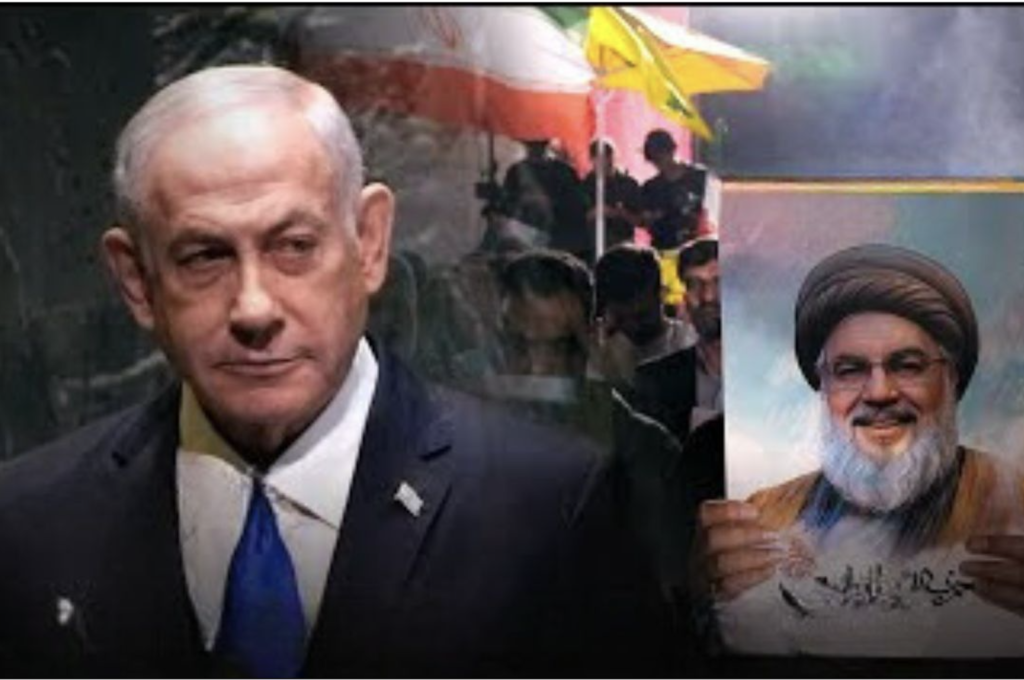Israel May Win the War Tactically, But Fail Strategically

By: Ghassan Rubeiz / Arab America Contributing Writer
Over the past twelve months, with US support, Israel has partially defeated Hamas, weakened Hezbollah, and humiliated Iran. Iran has made two attempts to retaliate, but those have been ineffective. Now, Israel seems to have obtained the green light from Washington to hit Iran’s military and oil installations — although not its nuclear facilities — and also feels emboldened to invade Lebanon. Israel’s innovative intelligence and efficient war machinery have rapidly changed the balance of power in the Middle East.
Still, Tel Aviv remains insecure about its political identity and path forward. On Sunday, on CNN’s “Global Public Square”, Fareed Zakaria suggested that Israel cannot and will not feel secure until it starts thinking strategically, instead of focusing on tactical gains.
Regrettably, as the war in Lebanon develops, the war in Gaza is fading from the attention of the global community. Lebanon waited for months for a ceasefire in Gaza in hopes that Hezbollah’s conflict with Israel would also end. But Netanyahu has not been willing to stop the fighting in Gaza before taking on Hezbollah.
Now the tables are turned: it is the Palestinians who are waiting for a ceasefire in Lebanon so that the carnage in what is left of Palestine can end. Moreover, in Israel, the focus on the new war in Lebanon has somewhat shifted public attention away from the fate of the hostages and prisoners, the tens of thousands of civilians and soldiers killed in the war, the suffering of two million devastated Gazans, and the return of a million displaced Lebanese and two hundred thousand displaced Israelis.
Israel is not alone in wanting to eliminate Hezbollah: the US has seen it as a threat to Lebanon and the region for years as well. But Lebanon will not quickly recover its sovereignty as a state just because Hezbollah is defeated.
David Ignatius’ quick fix for Lebanon, proposed in the Washington Post last week, is mostly wishful thinking. Closer to the mark is his admission a couple of days later that “Netanyahu ignored planning for the ‘day after’ in Gaza and is making the same mistake now as the IDF shatters Lebanon.” Lebanon’s complicated political problem is insoluble without the collaboration of all its ethnic and religious communities, including Hezbollah’s Shiite community, which has suffered decades of neglect and abuse.
Without the Shiite community’s support, Lebanon cannot become a robust democracy and cannot eventually forge a stable peace with Israel. It’s likewise unrealistic to think that Iran’s influence on Lebanon can be eliminated by force.
Over the next few days, Israel is likely to carry out an air attack on Iran. If the effect is significant, Iran will retaliate a third time. It might strike harder this time or target civilians. The consequences could be dire. Even if Iran is humiliated militarily, the people of the region will not accept Israel’s widening aggression. Should matters reach a boiling point, Washington will have to worry about the stability of the Arab Gulf regimes, whose security still depends on public acceptance of new partnerships with the West.
There’s no telling how this wave of violence might develop; what is certain is that it will do nothing to help Israel’s long-term security. Even if Israel manages to defeat Hamas and Hezbollah, the two movements will return to their roots as guerilla movements. Hezbollah emerged in Lebanon as a guerilla force in the early eighties in response to the Israeli invasion in 1982. Similarly, Hamas emerged in Gaza and the West Bank in the late eighties to try to give the Palestinians within the occupied territories the lead in resisting the occupation. Both movements have deep ideological and social ties to their communities.
Despite the change in the balance of power, neither Arabs nor Israeli Jews have learned much from the tragedies they have faced over the past year. To achieve strategic victory, Israel has to reexamine deep-rooted assumptions it holds about an occupation that has been worsening over the past fifty-five years:
- That Palestinians do not deserve to have a state of their own; they are “not politically mature;”
- That seven million Jews can sustain an occupation of a Palestinian population of the same size;
- That cultural differences between Arabs and Jews preclude their coexistence;
- That Palestinian resistance in any form is terrorism and anti-Semitism;
- That force will deter Palestinians from resisting the occupation;
- That Palestinian resistance is mobilized and controlled mainly by sinister external forces, whose removal would cause it to disappear;
- That regional peace must include some regimes and exclude others.
Palestinians also need to reassess a number of assumptions they hold about preparing for independence and coexistence with Israel. Perhaps the least appreciated piece of wisdom for both sides is the realization that real peace is guaranteed when the two sides work together creatively in search of common ground, security, and prosperity.
Ghassan Rubeiz is the former Middle East Secretary of the World Council of Churches. Earlier, he taught psychology and social work in his country of birth, Lebanon, and later in the United States, where he currently lives. For the past twenty years, he has contributed to political commentary and delivered occasional public talks on subjects related to peace, justice, and interfaith. You can reach him at rubeizg@gmail.com
The views and opinions expressed in this article are those of the author and do not necessarily reflect the position of Arab America. The reproduction of this article is permissible with proper credit to Arab America and the author.
Check out our Blog here!








